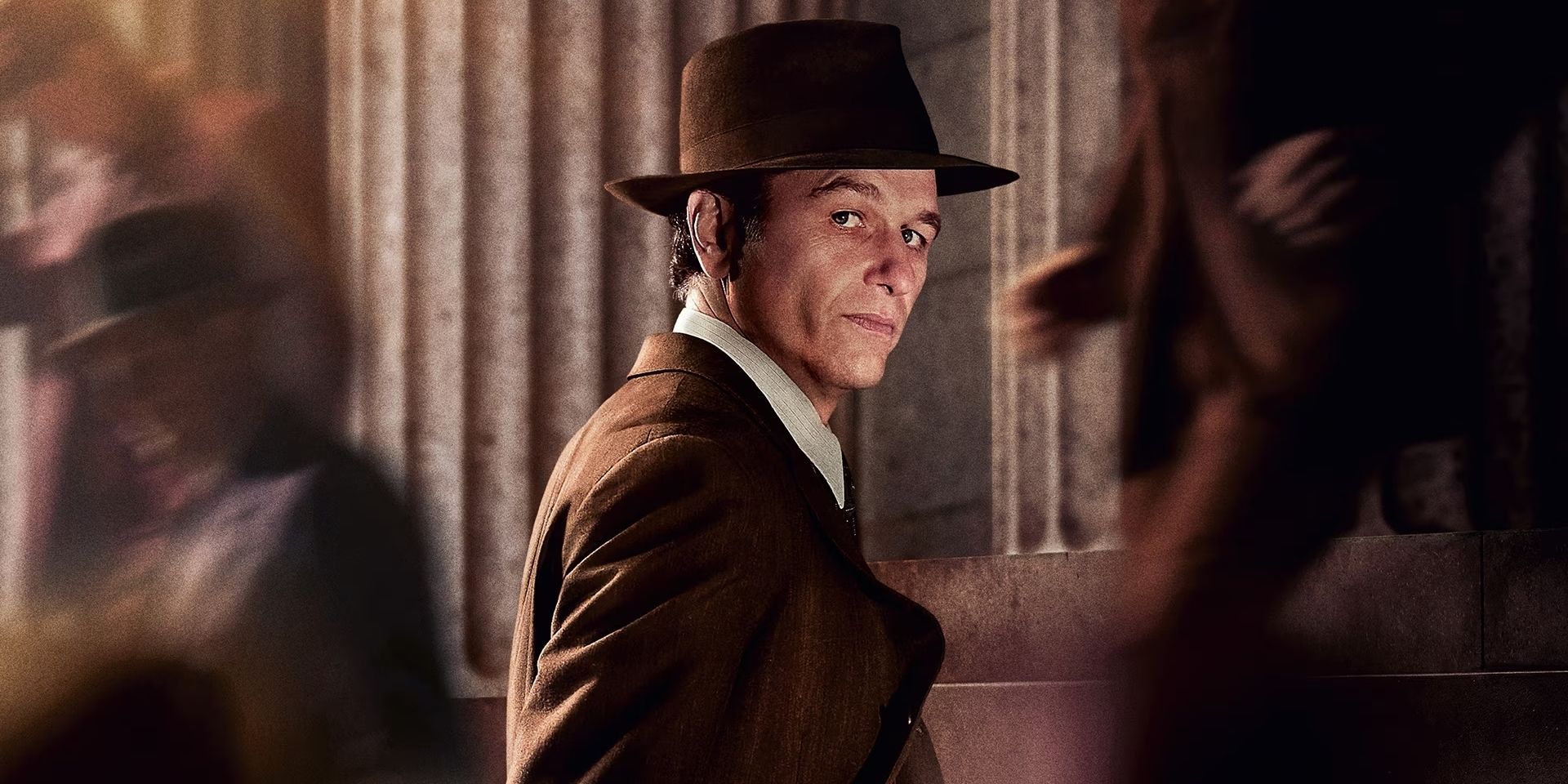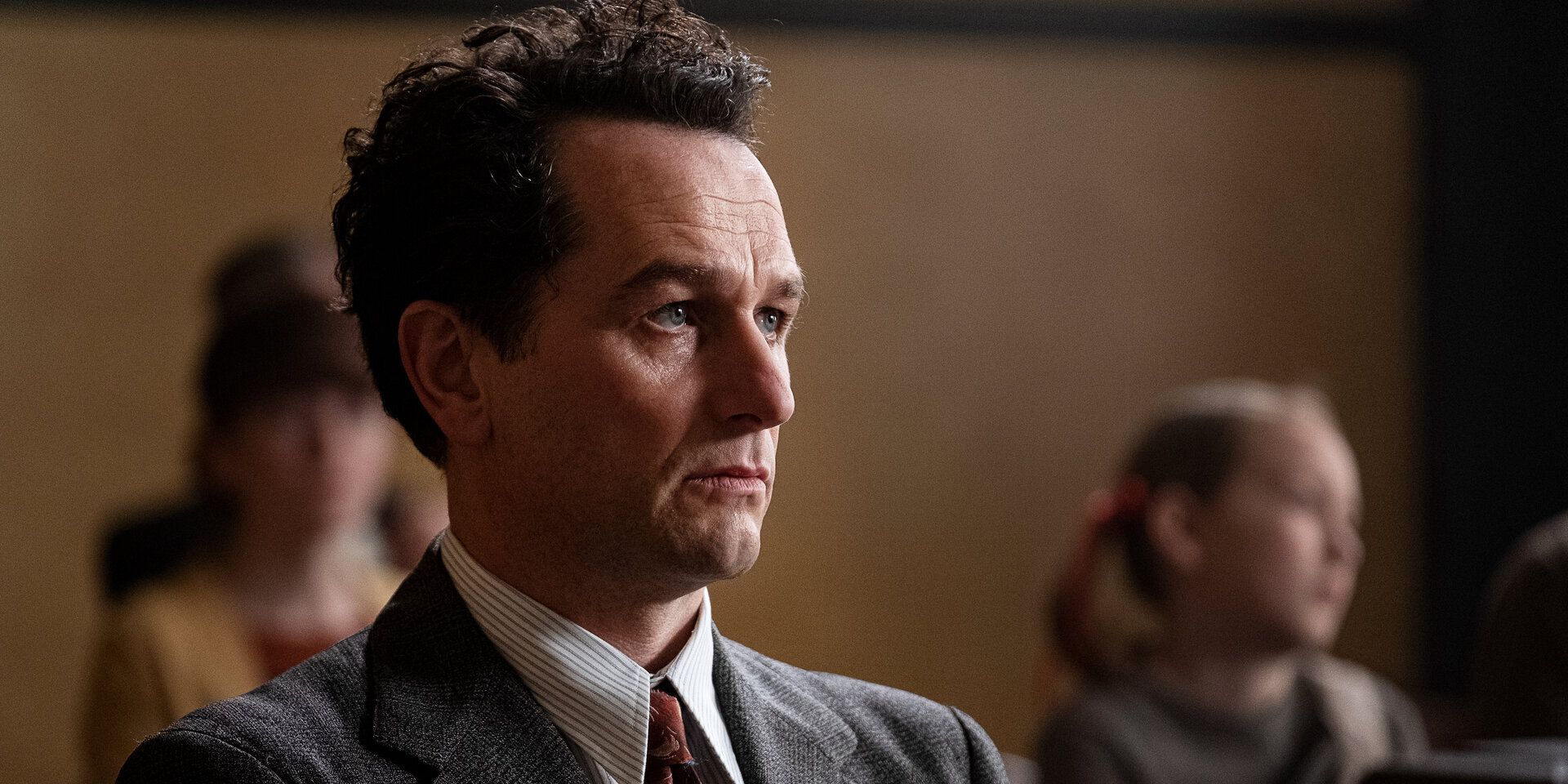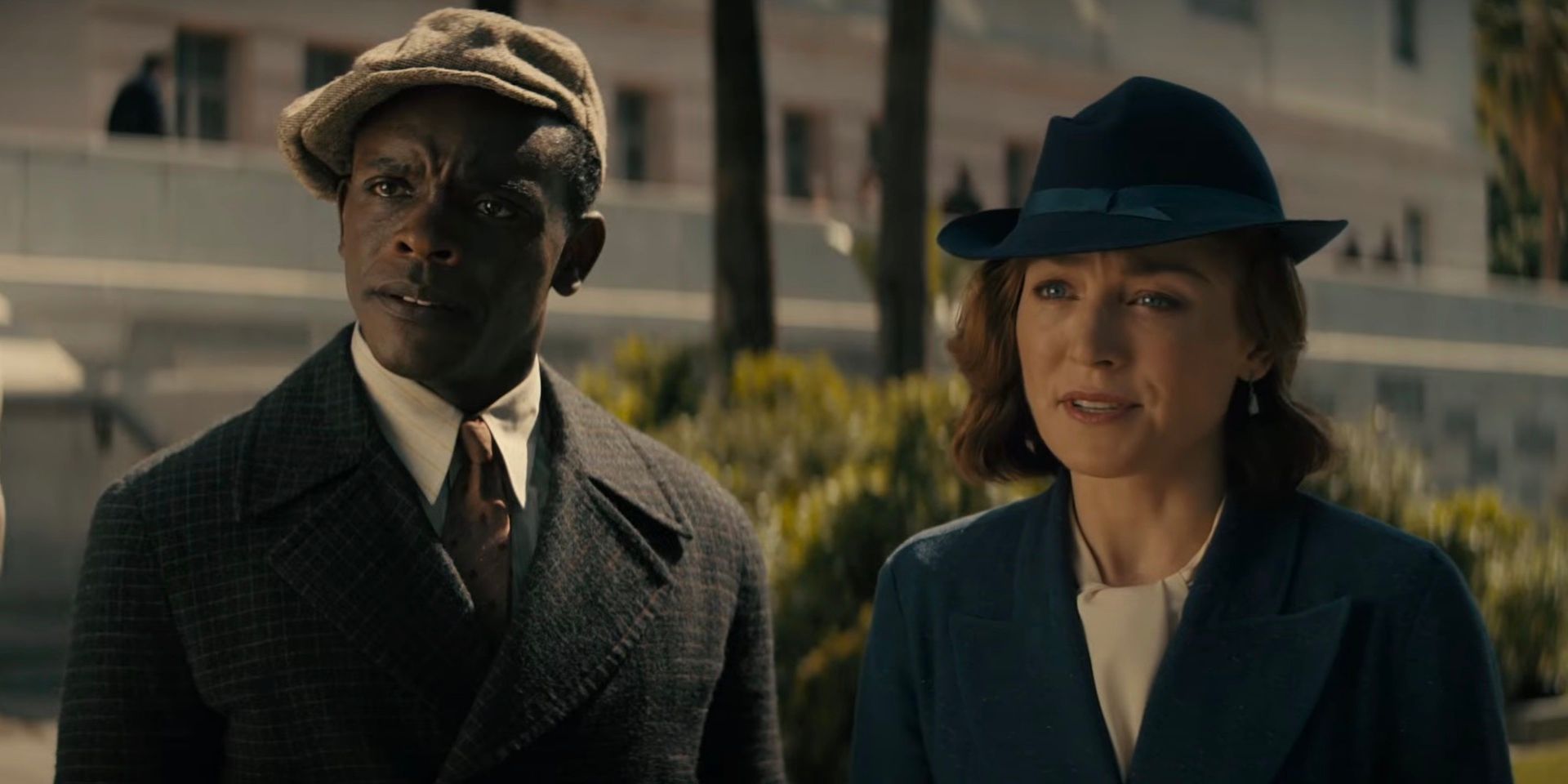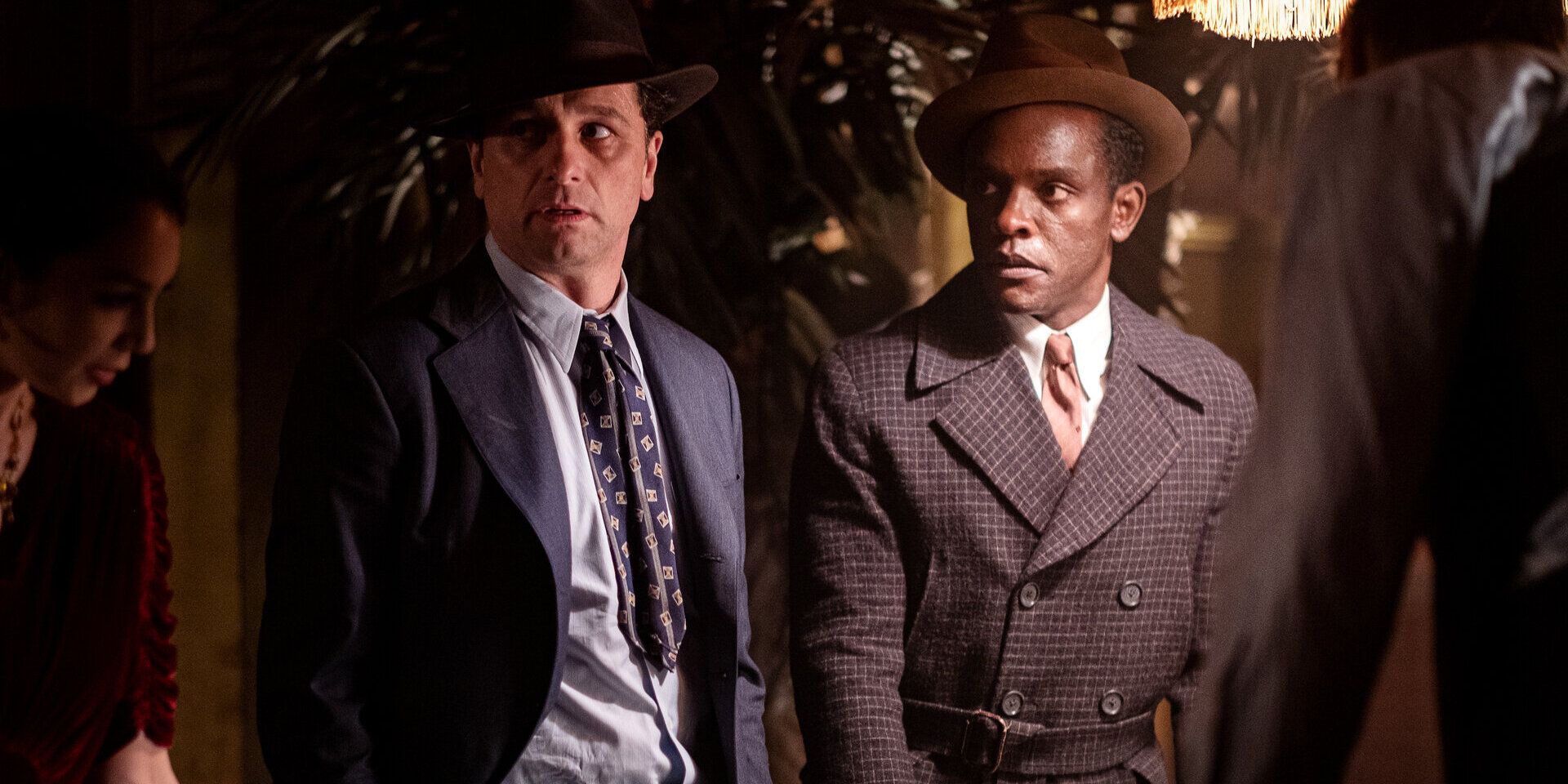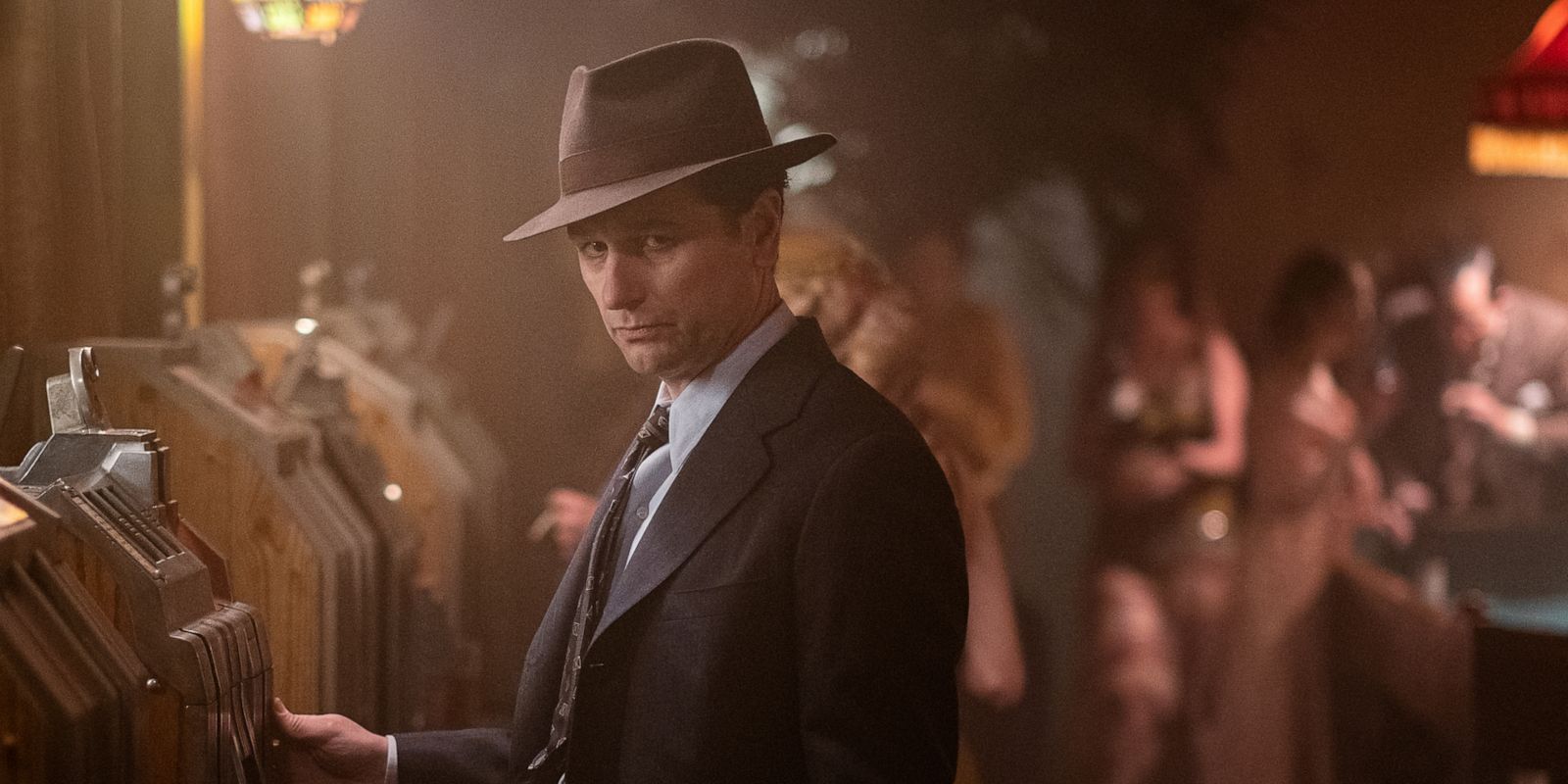The stakes have raised considerably in Perry Mason Season 2, with the eponymous attorney finding himself in the middle of a murder mystery tied to the very soul of 1930s Los Angeles. Oil magnate and philanthropist Brooks McCutcheon is brutally killed, with Perry defending the Gallardo Brothers, to Mexican American workers accused of the crime. As Perry learns that this killing and his clients' roles are more complex than he initially anticipated, his and his associates' personal lives face fresh complications of their own as they face mounting pressure from an expanding conspiracy behind the murder.
In an exclusive interview with CBR, series co-showrunner Michael Begler observed the challenges facing each of the main characters as Perry Mason Season 2 reaches its halfway point, shared how executive producer Robert Downey, Jr. helped provide the direction for the season's story and teased what fans can expect as Season 2 continues and continues to escalate.
CBR: I always find the second season of a show fascinating because, if the first is made in a vacuum, there's been feedback before Season 2. How did you want to approach Perry Mason Season 2 with that in mind?
Michael Begler: Rolin Jones and Ron Fitzgerald had created such a rich world, there was so much to grab onto and play with. I think what Jack [Amiel] and I set out to do was expand [on that]. As you've seen in Season 2, it is much more expansive. We're in L.A. more. Season 1 was gritty, but it felt very downtown, it felt very much inside Perry. Here, as much as we want to play inside Perry and the other characters, we wanted to showcase more of what Los Angeles is and because of that, the characters as well.
Just as Perry and the Gallardo Brothers are starting to feel the heat, you've brought back the rest of Perry's family. What was it about bringing Perry's family into the mix at this crucial point of the story?
We just felt that, to complicate Perry’s life, especially when the guy is going through imposter syndrome as where we start him this season, we thought, "in what ways could we exploit that?" There's the imposter syndrome of his job but also just as a man and as a father. These are failings in his life, so how do we keep complicating it? We thought that that would be an interesting thing, for sure.
Which also speaks to the romantic development with Ginny Aimes coming out of Episode 4 this season.
Yeah, exactly! What we love about Ginny. As opposed to Lupe who was such a strong presence and a very specific character who worked really well in Season 1, Ginny is an optimist, but she's not afraid. She says on the horse, "I wanted to come out here. I read about it." She did it, she took that leap. When she turns up at [Perry's] door that's a leap. These are the unexpected things and I think, in a way, that also challenges Perry. He has these assumptions and those assumptions are being challenged.
Paul Drake starts out Season 2 on the wrong foot with Perry, who inadvertently puts him in a bad spot. As the season progresses, we start to see Drake have to get his hands dirty a bit. How was positioning Drake in this way and tying him closer to the investigation?
We wanted to see where we could take Drake and his standards of morals. Here’s a guy who wanted to do right, he became a cop, and he figured it was the right thing to do, the right profession and believing in the law. In the first season, he realizes it's not as straight as he wants it to be. Now, as an investigator, it gives him more freedom, but he also sees that he's going to have to bend further, if that makes sense.
How about Della? Her romantic life is getting increasingly complicated as she returns to criminal defense law with Perry.
What we love about all the characters is expanding their worlds. With Della, I think that we wanted to see her in a grown-up relationship. In the first season, she’s with Hazel, and it was a bit chaste, and it was cloistered, it was in a room. I think the challenge for Della is that it’s one thing wanting to be an attorney as a woman in the 1930s. Only 3% of women in the country were attorneys in 1933 and to be a queer woman is even harder.
To put her toes in the water, out of the safety of where she's been, was really important to us. She needs to be shaken, challenged, and pushed. We're not just getting it from Anita, who is pushing her --she still has to be careful, but she's allowing herself to open [up] romantically, but [having] a growing relationship with Camilla. Here's the power woman and here's the professionalism and seeing what it’s going to take Della to really get her name on the door. As the season progresses, we see those two relationships really have that effect on her.
Drawing from real-life Los Angeles history to build this L.A. noir has been in the DNA of Perry Mason since the beginning, but how did you speak to that history and shine a light on it through the Brooks McCutcheon murder?
That’s the beauty of doing this stuff. You get to do these deep dives into all the research. We had great experts on the show who just helped us out, and you go down these rabbit holes. There's so much for us to choose from. One of the first conversations that we had with Susan Downey and Amanda Burrell of Team Downey; Robert Downey, Jr. sort of "Zoom-bombed" it and came in. He started talking about things that he liked from the era, and he said one word that stuck with us, which was "oil." That opened things up.
It's one of those things you don't think about with Los Angeles and when you start to do the research and look at the pictures, there was just this forest of oil derricks. There's so much wealth that we don't even understand in this city. In doing the research, we're also talking about that this is the worst year of the Depression. Those two things seemed so interesting to us, in terms of the power and -- we say this in the first episode -- this idea of justice, does it exist and who does it exist for. Those things really interested us.
Getting even more granular, when you read about the Mexican community and the deportations that were going on, that’s stuff you really don’t hear about but is still relevant today. We're not trying to parallel it to anything, it just happens to do that, and I think that’s a beauty of the show.
Why did you want to start Season 2 with a casino boat being set on fire?
Well, it's true! They were sabotaging each other, and we loved that idea that it’s sort of the Wild West out there. It's also metaphoric in a way of saying that things can just get out of control so fast and the explosiveness of it, all of that. It's [telling the audience] to hang onto your seat because you're not sure of what's going to happen.
The happiest we’ve seen Perry this season is when he and Pete break into the racetrack and Perry goes on the midnight joyride. What does that moment mean for Perry and Pete?
Perry is trying to take back control. Things were getting out of his control up until that point. This guy has been fighting for that control for so long, and it’s constantly being taken away from him. For him, he's focusing in on the man who he feels is affecting that the most, which is Lydell McCutcheon. How can he take that control and power back? In a drunken way, he can feel that sense of control and excitement that is dying in him. He got lit up from this case.
Now that's being extinguished, so how does he get lit up again? Why doesn’t he steal this guy's $700,000 horse and take it for a ride? It rears up and throws him. That’s metaphoric to him -- he pushes so hard. In that first episode, he's riding a motorcycle, and he goes faster and faster until he goes over the bars and off the side of a cliff. It's the same with the horse. He does that in his professional life, and he's doing it here.
He pushes Pete. Pete is a guy that doesn’t like to be talked into things. Here, Perry is pushing him and pushing him past where he's comfortable [which is] why they fight. Perry seems to be the guy who will take it too far and not realize who he's hurting along the way. I think that's what we wanted to take away from that.
Something that I think this season excels at is ending each episode on a great audience hook. As you're laying out the roadmap for the season, how is it writing to those codas?
Dude, it's so hard, I can't tell you. It's so exhilarating when you find it, but it's so difficult because you want to do that for the audience. I think the trick with a show like this is finding all that balance. You want to care about the characters. The two of us have been talking a lot about the characters and, to me, that's so important because everything comes out of character, but it's a mystery, so you want those plot twists.
You want to see where we're going to go with this. It really is that balancing act. It's like a chicken-and-the-egg thing, I don’t even know what comes first. You hope that it's always coming from character, but you also need to hit those moments that will keep an audience leaning in.
Michael, what else can you tease now that we're halfway through Perry Mason Season 2?
What would I say is buckle up -- the pace picks up in the second half. I feel that we've done our job in really establishing these characters in the first half and really setting the stage. As meaty as it is, it's going to get even meatier.
Created by Rolin Jones and Ron Fitzgerald, Perry Mason airs Mondays at 9 pm ET/PT on HBO, with episodes available to stream on HBO Max.

